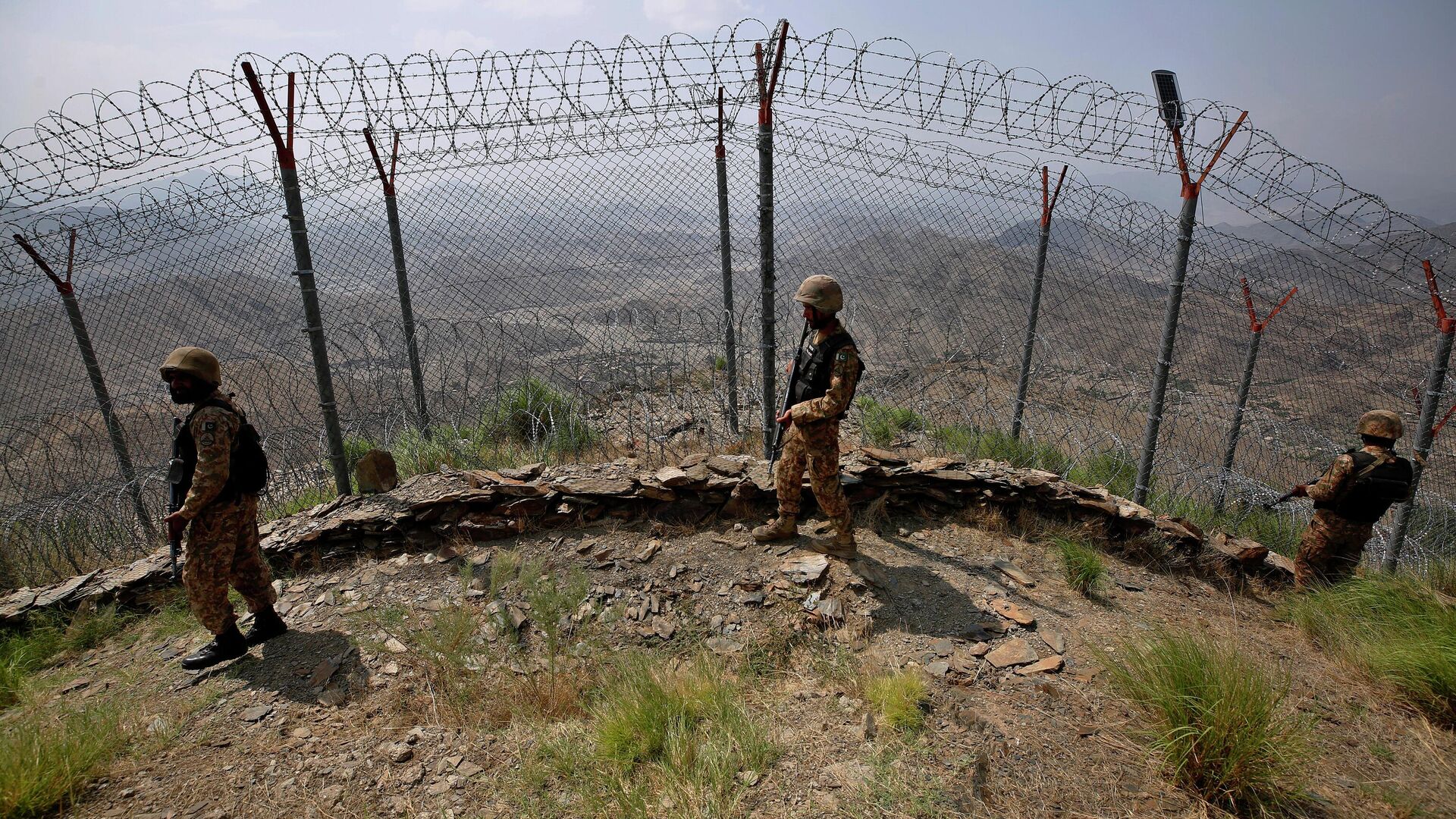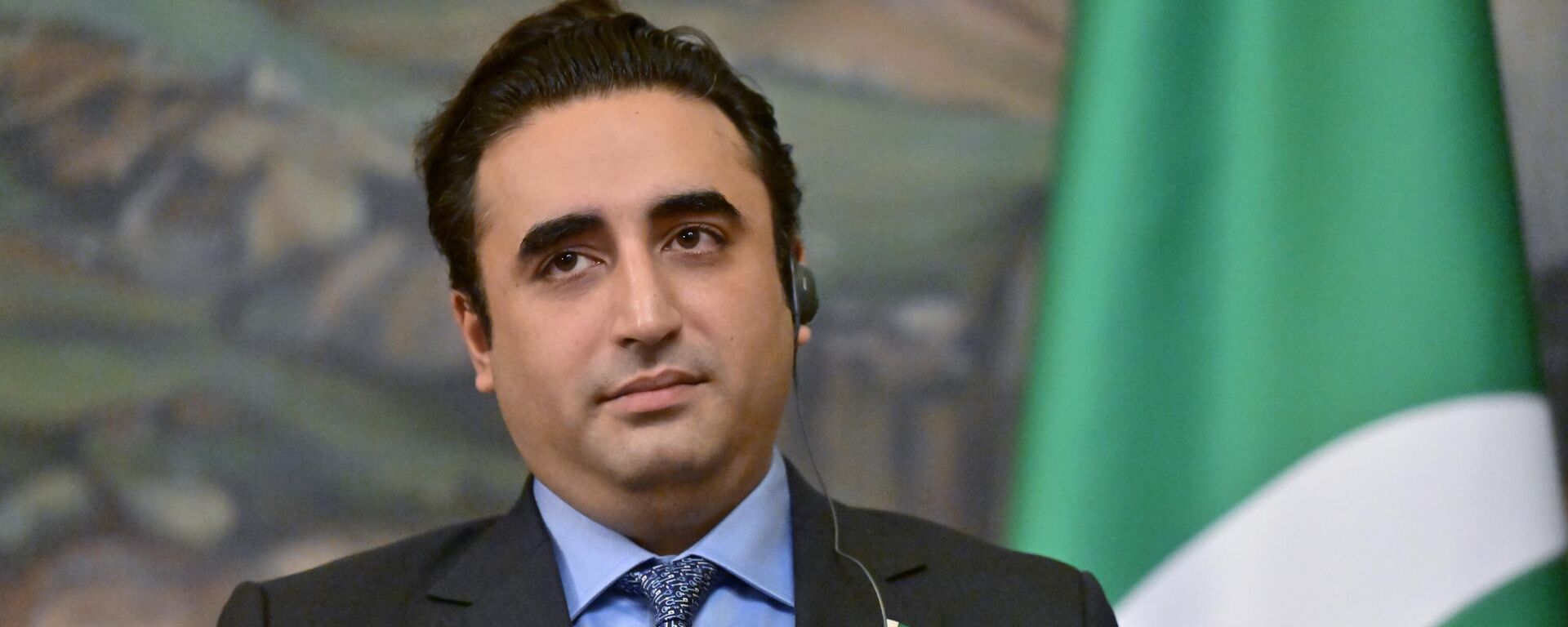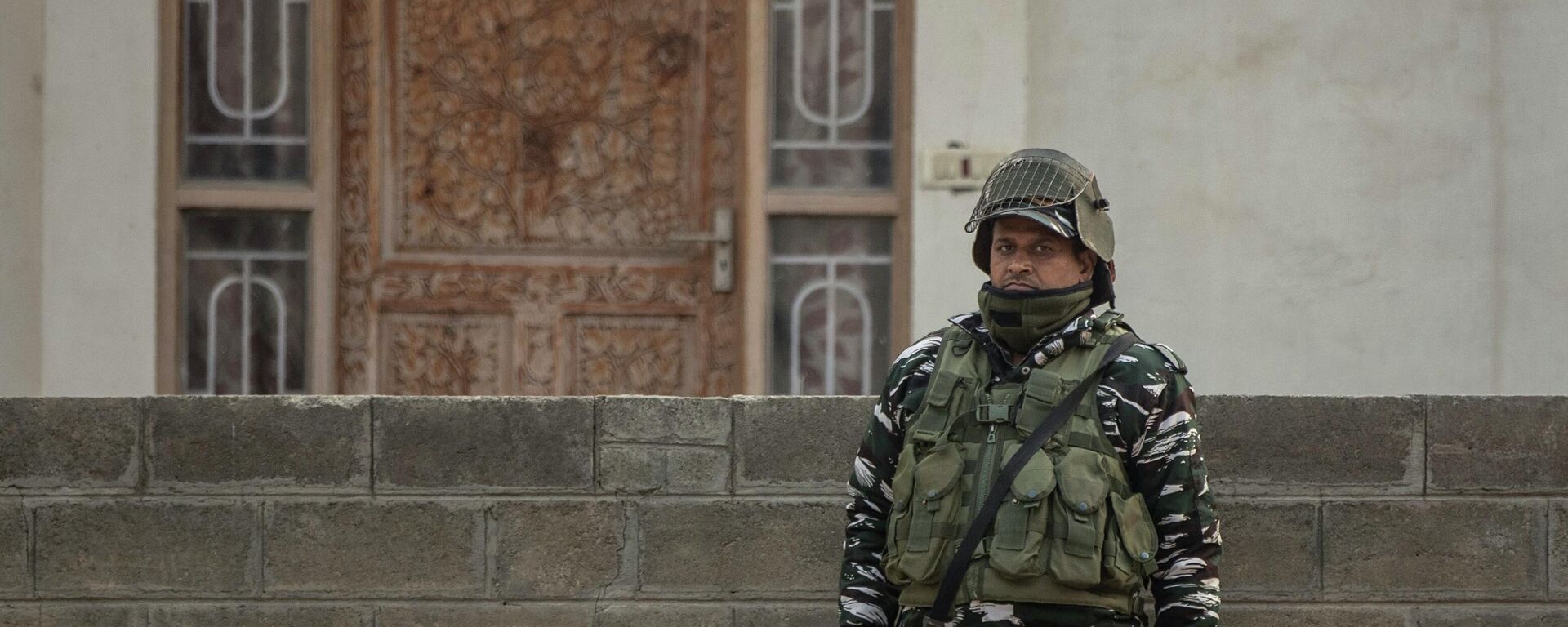https://sputniknews.in/20230604/islamabads-diminishing-role-in-afghanistan-good-news-for-india-expert-2295693.html
Islamabad's Diminishing Role in Afghanistan Good News For India: Expert
Islamabad's Diminishing Role in Afghanistan Good News For India: Expert
Sputnik India
A recent report in an Afghanistan publication suggested that New Delhi has overtaken Pakistan in influence in Kabul through the projection of its soft power.
2023-06-04T09:00+0530
2023-06-04T09:00+0530
2023-06-04T09:00+0530
sputnik opinion
taliban
tehreek-e-taliban pakistan (ttp)
pakistan
pakistan army
islamabad
kabul
new delhi
india
https://cdn1.img.sputniknews.in/img/07e6/0c/15/177165_0:148:3073:1876_1920x0_80_0_0_5c68e13dcb0ac50f81fde389e24088b3.jpg
An Indian geopolitical expert specializing in Afghan affairs has termed Pakistan's diminishing role in Afghanistan as "good news" for New Delhi.The comments of Ajai Sahni, who serves as the executive director of the New Delhi-based Institute for Conflict Management and also runs the South Asia Terrorism Portal, come at a time of growing friction between Islamabad and Kabul.Pakistan's Troubled Ties With TalibanIslamabad has repeatedly raised the issue of the Tehrik-e Taliban Pakistan (TTP)* fomenting trouble in the neighboring nation. According to Sahni, the geopolitical interest of Pakistan and the Taliban, which substantially coincided during the period of the Western intervention in Afghanistan, have now become irreconcilably divergent.He added that the Taliban has refused to accept the Durand Line as the permanent border between the two countries, and laid claim to the entire Pashtun-dominated regions of Khyber Pakhtunkhwa and North Balochistan as part of a Pashtun nation.Moreover, given the extreme economic crisis in Pakistan, resources for Islamabad to extend substantive support to Kabul under the Taliban are extremely limited.The analyst noted that under the circumstances, Pakistan's diminishing role in Afghan affairs is not surprising though complex linkages persist.The situation does create significant openings for Indian soft power projection and India has sought to take advantage of these from the early days of the Taliban regime, providing generous humanitarian aid.Nevertheless, India shouldn't forget that the Taliban regime is rigidly ideological."Though it is desperate to secure aid and support from any country at present, a stable, reliable, and enduring relationship with India is likely to be limited to very small areas," the scholar stressed.However, humanitarian aid is not the principal factor that has resulted in Pakistan being sidelined.Mentioning the reasons behind the Taliban's strained ties with Pakistan, Sahni underlined that the Taliban's position on the Durand Line, its resentment against the history of abuse and exploitation by Pakistan's ISI as well as Pakistan's diminished capacity to cater to the Taliban's urgent need for humanitarian and developmental aid have all contributed to Islamabad's diminishing influence.Moreover, Sahni pointed out that given its fundamental tensions with Pakistan, it was unlikely that the Taliban would go out of its way to facilitate terrorist operations in Kashmir.Sahni's reference to Kashmir was in the context of India's top Army commander in the region revealing that no Taliban fighter has crossed into its territory after the hardline Islamic group seized power in Kabul."So, there was no infiltration of any Afghani Taliban... To that effect, we have been able to control [things]," he remarked.Sahni, meanwhile, labeled this as a welcome development for India"This is certainly good news for India and will allow for smoother cooperation with Kabul on a variety of issues," he concluded.* a terrorist organization banned in Russia and South Asia** under UN sanctions for terrorism
https://sputniknews.in/20230527/ttp-is-pakistans-issue-taliban-rejects-bilawal-bhuttos-appeal-over-terrorism-2198214.html
https://sputniknews.in/20230601/no-recent-taliban-infiltration-into-kashmir-indian-army-2278570.html
pakistan
islamabad
kabul
new delhi
india
Sputnik India
feedback.hindi@sputniknews.com
+74956456601
MIA „Rossiya Segodnya“
2023
Pawan Atri
https://cdn1.img.sputniknews.in/img/07e6/0c/13/139630_147:0:831:684_100x100_80_0_0_8fa2b25903e7787fe6a2698552c167df.png
Pawan Atri
https://cdn1.img.sputniknews.in/img/07e6/0c/13/139630_147:0:831:684_100x100_80_0_0_8fa2b25903e7787fe6a2698552c167df.png
News
en_IN
Sputnik India
feedback.hindi@sputniknews.com
+74956456601
MIA „Rossiya Segodnya“
Sputnik India
feedback.hindi@sputniknews.com
+74956456601
MIA „Rossiya Segodnya“
Pawan Atri
https://cdn1.img.sputniknews.in/img/07e6/0c/13/139630_147:0:831:684_100x100_80_0_0_8fa2b25903e7787fe6a2698552c167df.png
islamabad afghanistan new delhi soft power, india soft power afghanistan, expert india growing soft power afghanistan, india replaces pakistan soft power afghanistan, new delhi soft power afghanistan, india soft power afghanistan pakistan, pakistan influence taliban india, pakistan influence afghanistan india soft power, pakistan's troubled ties with taliban, pakistan-taliban relations,
islamabad afghanistan new delhi soft power, india soft power afghanistan, expert india growing soft power afghanistan, india replaces pakistan soft power afghanistan, new delhi soft power afghanistan, india soft power afghanistan pakistan, pakistan influence taliban india, pakistan influence afghanistan india soft power, pakistan's troubled ties with taliban, pakistan-taliban relations,
Islamabad's Diminishing Role in Afghanistan Good News For India: Expert
A recent report in an Afghanistan publication suggested that New Delhi has overtaken Pakistan in influence in Kabul through the projection of its soft power.
An Indian geopolitical expert specializing in Afghan affairs has termed Pakistan's diminishing role in Afghanistan as "good news" for New Delhi.
The comments of Ajai Sahni, who serves as the executive director of the New Delhi-based Institute for Conflict Management and also runs the South Asia Terrorism Portal, come at a time of growing friction between Islamabad and Kabul.
Pakistan's Troubled Ties With Taliban
Islamabad has repeatedly raised the issue of the Tehrik-e Taliban Pakistan (TTP)* fomenting trouble in the neighboring nation.
Pakistan Defense Minister Khawaja Asif even warned the Taliban** authorities to stop providing sanctuaries to TTP militants in Afghanistan or else the country's Army would carry out strikes to dismantle the alleged terrorist infrastructure there.
According to Sahni, the geopolitical interest of Pakistan and the Taliban, which substantially coincided during the period of the Western intervention in Afghanistan, have now become irreconcilably divergent.
He added that the Taliban has refused to accept the Durand Line as the permanent border between the two countries, and laid claim to the entire Pashtun-dominated regions of Khyber Pakhtunkhwa and North Balochistan as part of a Pashtun nation.
"In pursuit of such an outcome, the Taliban has turned the very strategies and tactics that Pakistan exploited against the West and its proxy regime in Afghanistan. The result is that the banned Tehrik-e Taliban Pakistan (TTP) is provided safe haven on Afghan soil and is facilitated in carrying out strikes across the border into Pakistani territory," Sahni told Sputnik on Friday.
Moreover, given the
extreme economic crisis in Pakistan, resources for Islamabad to extend substantive support to Kabul under the Taliban are extremely limited.
The analyst noted that under the circumstances, Pakistan's diminishing role in Afghan affairs is not surprising though complex linkages persist.
The situation does create significant openings for Indian soft power projection and India has sought to take advantage of these from the early days of the Taliban regime, providing generous humanitarian aid.
"As both India and Afghanistan now see Pakistan as a common adversary, at least, along certain parameters, the scope for the opportunistic exploitation of common interest exists and is likely to expand," Sahni argued.
Nevertheless, India shouldn't forget that the Taliban regime is rigidly ideological.
"Though it is desperate to secure aid and support from any country at present, a stable, reliable, and enduring relationship with India is likely to be limited to very small areas," the scholar stressed.
However, humanitarian aid is not the principal factor that has resulted in Pakistan being sidelined.
Mentioning the reasons behind the Taliban's strained ties with Pakistan, Sahni underlined that the Taliban's position on the Durand Line, its resentment against the history of abuse and exploitation by Pakistan's ISI as well as Pakistan's diminished capacity to cater to the Taliban's urgent need for humanitarian and developmental aid have all contributed to Islamabad's diminishing influence.
Moreover, Sahni pointed out that given its fundamental tensions with Pakistan, it was unlikely that the Taliban would go out of its way to facilitate terrorist operations in Kashmir.
Sahni's reference to Kashmir was in the context of India's top Army commander in the region revealing that no Taliban fighter has crossed into its territory after the hardline Islamic group seized power in Kabul.
"As far as the apprehensions post-Taliban 2.0, we could see the manifestations [of concern] on this side [outside of the region] as well in Kashmir, but it [the influx] never happened," Lt. Gen. A. D. S. Aujla told reporters in Srinagar this week.
"So, there was no infiltration of any Afghani Taliban... To that effect, we have been able to control [things]," he remarked.
Sahni, meanwhile, labeled this as a welcome development for India
"This is certainly good news for India and will allow for smoother cooperation with Kabul on a variety of issues," he concluded.
* a terrorist organization banned in Russia and South Asia
** under UN sanctions for terrorism




